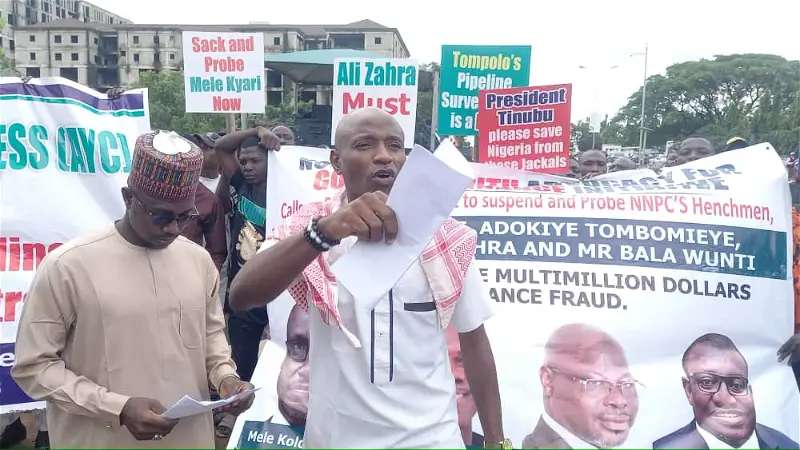Editorial
Pipelines’ security and the imperative of federalism

Since it was announced recently, public attention has been on the moral and financial dimensions, but from every indication, the award of pipelines protection contract to a private security company portends more ironic implications for the nature, future, and effectiveness of the structure of our federation. It also points to a basic fact behind lack of progress in public policy and operations of government.
On the surface, government seems to have taken a decisive step to stem the financially nefarious and environmentally damaging incident of oil theft, which has literally brought the economy to its knees with all sorts of negative effects, such as collapse in the value of the naira, rising debt stock, and devastation of the environment. Since 2019, Nigeria has struggled with meeting its OPEC production quota, which continued on a downward spiral to the present day when it has become an existential challenge.
From a production quota of 1.8milluon barrels per day (mbpd), the country has been pegged on an output of 1.4 mbpd and as low as 1.2mbpd by some informed estimates with over half a million barrels stolen at a time of high oil price as a result of the Russian war in Ukraine.
Although, government officials had used it as an excuse to justify the senselessly unparalleled borrowing binge by this government, which has seen the debt profile balloon from just N12 trillion in 2015 to N48 trillion by the end of the first quarter of 2022, and expected to reach N60 trillion by 2023, when another N12 trillion budget deficit is added, it is critical to put the issue in proper context..
So, apparently, government is justified by taking the present step to curb such maliciously unpatriotic behaviour with attendant destructive consequences.
However, it smacks of hypocrisy and defeatist to pursue this at the twilight of the administration. This policy of private security protection of pipelines was in place before taking over power in 2015, which the regime promptly condemned and scrapped for transferring government responsibility to personal interests.
Incidentally, it is the same company that government sacked from the contract that it turned around after eight ruinous years to reaward the contract at the homugous fee of N48 billion which sparked protest in some parts of the country..
So, what was the wisdom in revoking the contract in the first place? What did government gained or lose since security agencies assumed the responsibility? Why did government wait until the situation became hopelessly dire and at the end of its tenure of eight years to revert to status quo?
The previous decision to farm out the security duty to ex-militants was borne out of the dynamic of the ownership politics of the oil sector, and the clear failure of security agencies, through collusion, to tackle the problem. But without properly appraising the issues, this government then jumped to the uninformed conclusion of the privatisation of public interest. Surprisingly, after running the entire system aground, it has, like a dog, returned to its vomit.
There are fundamental issues arising from this decision, which eloquently point to the uncritical approach of this government to the myriad of existential challenges bedeviling the nation. The first is resource control. Evident in the present situation is the lesson that you cannot successfully take a man’s resources perpetually without serious consequence. Security agencies are unable to deal with the problem because they are occupying forces sent there to advance ‘foreign’ interests.
Secondly, people in other parts of this country exercise unfettered control over mining activities protected by security agencies, while similar illegal activity on oil is treated differently. While we do not condone or rationalize any of such, the truth and the moral obligation on government is the urgent need for a clear redefinition of resource ownership in the country to ensure equity and justice in its exploitation and management for the good and peace of all.
In our considered opinion, the greatest irony in this step of private security protection of the pipelines is the implication on structure of our federation. Whereas, this government is willing and ready to cede gun control powers to non state actors for political and economic benefits, it is at the same time decidedly and vehemently opposed to granting state governments access to guns to protect their people and public property. The irony is so palpably pervasive to be ignored or overlooked by even a perfunctory observer.
We are troubled by such over- politicisation of national security on the altar of sectional or group consideration. Most security experts agree that the immediate and long term solution to the scourge of insecurity in the country is devolution of policing or state police, because the single tier police structure in a large federation is unsuitable and misaligned to its security architecture. The Nigeria Police is undermanned, underfunded, and ill-equipped to effectively discharge such collective responsibility.
Even as it is today, most states governments fund over 50 percent of the operational logistics of police state commands. So, what is the wisdom in imposing such duty on them without the requisite control? As we approach the next election, parties and their candidates must be compelled to explain these issues and be held accountable on them. We must not vote again on the basis of some whimsical and emotional fancies, which have been a fait accompli in the past few polls where people voted out of malice and nostalgia, rather than on concrete measurements of past records and performance.








